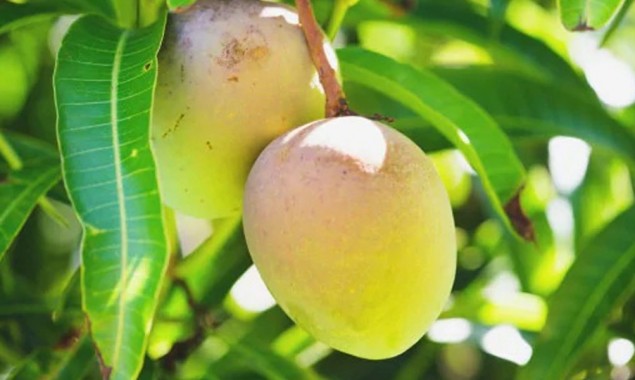
People are familiar with the sweet fruit that grows on the mango tree, but they may not know that the leaves of this tree can also be eatable because these leaves are considered nutritious.
Mango varieties known as Mangifera Indica have been used for thousands of years in Ayurvedic and traditional Chinese medicine to heal wounds.
Its leaves are believed to be useful in diabetes and other health problems. In addition to the bark and twigs of the mango tree, its fruit is used in indigenous medicine. Below are the benefits of mango leaves which are also confirmed by science researches.
Rich in plant compounds
Mango leaves contain many useful plant compounds, including polyphenols and terpenoids. Trypanosomes are important for vision and immunity. They are also antioxidants that protect our cells from harmful molecules called free radicals.
Polyphenols, on the other hand, have antioxidant and anti-inflammatory properties. Some studies show that they improve gut bacteria (beneficial germs found in the digestive system) and help treat or protect against obesity, diabetes, heart disease and cancer.
Many plants contain a polyphenol called manganese, but mango and its leaves are particularly high in it. There are many reported medical benefits.
It is thought to be an antiseptic, a treatment for gout, diabetes, heart disease and fat digestion problems, but more research is needed.
Also read: Beat the heat with seasonal fruits
Anti-inflammatory properties
Mango leaves have anti-inflammatory properties. Although inflammation of the body due to the immune response is normal, chronic inflammation increases the risk of various diseases. Research has shown that the anti-inflammatory properties of mango leaves can protect the brain from problems such as Alzheimer’s or Parkinson’s.
Get rid of obesity
Mango leaves extract can be useful in obesity, diabetes and metabolic syndrome. According to the results of several studies, their extract prevents the accumulation of fat in the tissue cells. According to a study conducted on rats, mango leaves extract reduces fat levels and increases adiponectin levels.
Adiponectin is a protein that sends messages to cells that play a role in the body’s metabolism of fats and sugar balance. Too much of it can protect against obesity and chronic obesity-related diseases.
In a 12-week experiment on 97 overweight adults, participants who were given 150 mg of manganese daily had lower blood fat levels and better insulin resistance index scores. Low insulin resistance is beneficial in diabetes.
Improving diabetes
Mango leaves can be useful in diabetes due to its effect on fat metabolism. Increased triglyceride levels can usually be linked to insulin resistance and type 2 diabetes. In a study conducted on animals, when they were given extract, their triglyceride and blood sugar levels dropped significantly two weeks later.
Anti-cancer properties
Numerous studies have shown that manganese found in mango leaves has anti-cancer effects because it counteracts oxidative stress and inflammation. According to test tube research, it is effective against leukaemia, brain, chest, uterus and prostate cancer. In addition, another type of polyphenol lignans in mango peel has the ability to fight cancer. However, mango leaves should not be considered a cure for cancer.
Treatment of gastric ulcer
Mango leaves and other parts have been used throughout history for gastric ulcers and other digestive disorders. According to a study conducted on animals, 250 to 1000 mg per kg (depending on body weight) reduce the number of gastric ulcers.
Also read: Can diabetics enjoy mango, the king of fruits?
Read More News On
Catch all the Health News, Breaking News Event and Latest News Updates on The BOL News
Download The BOL News App to get the Daily News Update & Follow us on Google News.




